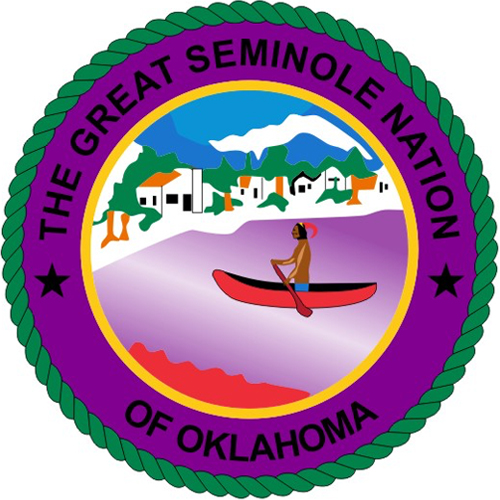The U.S. Department of Interior’s (DOI) Office of Surface Mining Reclamation & Enforcement (OSMRE) notified Oklahoma the state no longer has the authority to regulate and issue permits under the Surface Mining Control and Reclamation Act of 1977 (SMCRA) on Indian lands there.
OSMRE’s action came after the U.S. Supreme Court ruled in McGirt v. Oklahoma (2020) five Native American reservations in eastern Oklahoma had never been lawfully disestablished, meaning oversight of the surface and subsurface uses of the lands in question fall under the purview of the tribes and the federal government.
Rules Changed
Approximately half of the state of Oklahoma consisted of five Native American reservations of the “Five Civilized Tribes” before Oklahoma attained statehood under the 1906 Oklahoma Enabling Act (OEA). Under the OEA, the tribes retained suzerainty (autonomy) within their reserved lands. The newly formed state retained jurisdiction over non-Native Americans and for other legal purposes. The Act was presumed to have disestablished the reservations themselves.
Jimcy McGirt, a member of the Seminole tribe, challenged the disestablishment of the reservations in an attempt to overturn state convictions on various sex crimes. McGirt’s legal team argued the language of the Establishing Act had failed to disestablish the reservations. As a result, they said his case was subject to federal, not state, jurisdiction under the Major Crimes Act of 1885, which placed certain crimes committed by Native Americans on tribal lands under federal jurisdiction.
McGirt’s case reached the U.S. Supreme Court in 2020. In a landmark majority decision written by Justice Neil Gorsuch and joined by Breyer, Ginsburg, Kagan, and Sotomayor, Gorsuch ruled the Enabling Act had not disestablished the reservations and that prosecution of the case fell under federal jurisdiction.
The broader implication of the decision is that the reservations were never disestablished. The Biden administration and the tribes argue that determination justifies reassignment to the federal government of jurisdiction in matters such as land and resource regulation and permitting.
Dissent Noted Big Impact
In his dissent in McGirt, Chief Justice John Roberts said the consequences of the decision could include taxation, adoption, and environmental regulations, The ruling “has profoundly destabilized the governance of eastern Oklahoma,” Roberts wrote.
Roberts’ warning was borne out in a December 2020 letter the Seminole Nation sent to oil and gas companies operating within the tribe’s historic territory, in which the tribe asserted its right to tax and permit oil producers. The letter states operators must obtain permits from the Seminole Nation and would be subject to an 8 percent “severance fee” of the gross market value of any oil and gas produced.
In OSMRE’s notice to Oklahoma withdrawing the state’s authority to permit and regulate mining claims on tribal lands, the agency noted the SMCRA defines “Indian lands” as “[a]ll lands, including mineral interests, within the exterior boundaries of any Federal Indian reservation, notwithstanding the issuance of any patent, and including rights-of-way, and all lands including mineral interests held in trust for or supervised by an Indian tribe.”
OSMRE indicated approximately half the state’s mining operations now fall under federal jurisdiction.
Tax Revenue Hit
U.S. Environmental Protection Agency (EPA) Administrator Michael Regan held separate phone calls with Oklahoma Gov. Kevin Stitt and leaders from several tribal nations to discuss the Biden administration’s approach to natural resource management on tribal lands in the wake of the McGrit decision.
“It is a priority of the Biden-Harris Administration to respect tribal sovereignty, fulfill federal trust and treaty responsibilities, and engage in robust consultation with tribal nations in policy deliberations that affect tribal communities,” an EPA official told Reuters after the calls.
After the phone call with EPA, Stitt told a news broadcast he was concerned the McGirt ruling could seriously undermine Oklahoma’s tax revenues and the sanctity of historic land and resources.
“My big fear for the sake of Oklahoma’s future is if it goes into taxation or it bleeds into regulation, then the state of Oklahoma doesn’t have any rights in eastern Oklahoma,” Stitt said.
In 2019, the state collected $452.8 million from the gross production tax on gas and $655.7 million from oil, making it the state’s third source of revenue behind the personal income tax and sales tax. While most of the state’s petroleum production lies outside the affected eastern portions of the state, revenues could still be reduced.
Paris Factor
Also at risk is state permitting policy, with the Biden administration rejoining many components the Paris climate agreement and implementing other climate policies aimed at reducing oil and gas production on federal lands.
Oklahoma Energy Secretary Kenneth Wagner, who was also on the call, told reporters the Supreme Court’s decision should be limited to crimes, not civil matters. Stitt agreed, saying Oklahoma should return to the Supreme Court to press this claim.
‘Significant Negative Impacts’
The McGirt decision will have far-reaching harmful consequences for Oklahoma, says Byron Schlomach, Ph.D., director of the 1889 Institute.
“Despite Justice Gorsuch’s attempt to narrowly tailor his ruling to the federal Major Crimes Act, we knew it would be applied to other areas,” Schlomach said. “The decision by the Office of Surface Mining Reclamation and Enforcement, if it stands, will likely have significant negative impacts on Oklahoma’s economy as well has the state’s fiscal picture, as our rights to control our own economic destiny are denied in the name of an erroneous legal interpretation.”


























